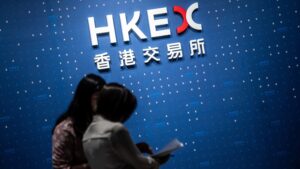The Upcoming AI Frontier: How China’s Manus May Surpass Western Agent Technology

The Rise of Autonomous AI Agents
Understanding the Shift from Chatbots to AI Agents
The next phase of Artificial Intelligence (AI) innovation will focus on autonomous agents. Unlike traditional chatbots like ChatGPT, which primarily generate text in response to user queries, next-generation AI agents can perform complex tasks independently, with minimal human oversight. As we advance, these AI agents may take on roles as virtual assistants, educators, caregivers, employees, or even companions.
Currently, many are eagerly anticipating when AI agents will mark their "ChatGPT moment"—that pivotal point when people across the globe recognize the systems’ transformative potential. Amid recent market changes associated with the emergence of DeepSeek, a new Chinese AI contender called Manus has gained attention.
What Exactly Is Manus?
Manus is presently available as an invite-only research preview, casting some skepticism on the claim by its developer, Monica, that it is the first true AI agent. OpenAI’s Operator model is also in a research preview state, though it can be accessed by users on the paid tier of ChatGPT.
A demonstration video has shown Manus completing tasks such as screening job applications, researching housing options, and analyzing stock data. The name "Manus," derived from the Latin phrase “Mens et Manus,” meaning “mind and hand,” reflects its dual structure, utilizing large language model (LLM) algorithms as its "mind" and deterministic algorithms as its "hand." This design allows Manus to not only generate responses like ChatGPT but also execute actions, integrating with services and processing data in a way similar to traditional software applications.
For instance, while ChatGPT can generate Python code, Manus can execute, test, and refine that code autonomously. Instead of merely summarizing financial reports, it can gather real data and conduct its own analysis, showcasing a significant leap in capabilities.
Interestingly, the creators of Manus do not view coding as its primary objective; they regard it as a “universal tool for problem-solving.” This opens the possibility for Manus to tackle challenges in ways we have yet to imagine, potentially redefining the boundaries of AI’s problem-solving abilities.
Moreover, Manus is built on open-source technologies, utilizing the LLM from Anthropic’s Claude and Alibaba’s Qwen. Despite being classified as a proprietary system, there are plans to release portions of Manus as open source in the future.
Are We Witnessing the Dawn of AGI?
Despite the excitement surrounding Manus, it is important to clarify that it does not qualify as artificial general intelligence (AGI). As stated by the developers, Manus provides only a glimpse into AGI. The concept of AGI includes the capability for AI systems to learn and perform a wide range of tasks as human beings do. It entails using available tools intelligently or even creating new tools when necessary.
Manus should be viewed as a collection of tools and models functioning under its agency—distinct from an all-encompassing software solution like ChatGPT4o. However, it is evident that AI is progressing rapidly, with advancements being made towards systems capable of managing digital and real-world tasks actively.
The Geopolitical Landscape of AI Development
In recent years, AI has become a crucial element in global geopolitics, particularly between the United States and China. Both governments acknowledge AI’s potential to influence various sectors, ranging from healthcare and economics to military applications.
Historically, U.S. companies, including OpenAI, Google, and Microsoft, have led the AI market. However, China’s centralized approach has allowed it to make significant progress, with the introduction of DeepSeek and now Manus potentially altering the competitive landscape.
The arrival of DeepSeek influenced U.S. tech stock prices, as it appeared to demonstrate performance comparable to leading U.S. AI models at a significantly lower cost. If Manus lives up to its developers’ expectations, it could further shift the balance of AI leadership, prompting a reevaluation of strategies among Western firms.
The Role of Everyday AI Agents
The race to create what may become the operating system for AI is underway. As we develop agentic AI, individuals will be empowered to utilize machines without the need for specialized knowledge or skills.
Consequently, AI and automation will increasingly permeate our daily routines, assisting us in both personal and professional tasks. This evolution signifies a transformative shift in how humans interact with technology, as AI becomes capable of acting autonomously on our behalf for the first time.




